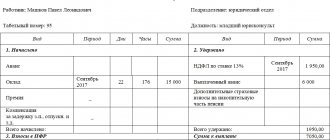Nervous system diseases
Working at a computer is purely intellectual work. And therefore the main part of the load falls on the nervous system, namely the brain. Working at a computer for long periods of time can often cause headaches. There are several types of headaches that can be triggered by working at a computer. One of the factors that provokes the appearance of headaches is chronic overexertion; constant tension of the cranial and facial muscles is also important.
Attention disorders and inability to concentrate are a consequence of chronic fatigue. Sometimes, working at a computer for a long time can cause tinnitus, dizziness, and nausea. If these symptoms occur, you should seek advice from a doctor and temporarily stop working at the computer. In addition to the diseases described above, prolonged use of the computer can cause gastritis, stomach ulcers, and prostatitis.
Tired eyes.
Constant contact with the monitor puts a lot of strain on the eyes. There is an opinion, in my opinion erroneous, that looking at a monitor is harmful. It makes absolutely no difference where you look - at the monitor, at a book, at the TV screen. You can sit with a book for the same amount of time, and it will also be harmful. We just don’t look anywhere else like at the screen. We are talking about elementary visual tension. Muscles get tired, so they, just like skeletal muscles, need to be trained. You need to periodically get up from the computer and look out the window, into the distance - at the sky, at the grass, at the trees. You can do a kind of gymnastics for the eyes - glue a paper mark to the glass, and then alternately look at the glass and then at the wood. And exercises with closed eyes are mandatory - close your eyes and rotate your eyeballs left, right, up, down, then close your eyes, because not only the muscles of the eye are trained, but also the eyelids. Close your eyes tightly, relax, close your eyes, relax. Blood circulation improves and heaviness and fatigue are relieved.
| Ophthalmologist Elena Archilovna Dzidziguri . Ophthalmologists believe that the human visual system is poorly adapted to viewing images on a monitor screen. The essence of working on a computer is to enter or read text, draw or study some details. And this is a huge strain on the eyes, because the image on the display screen is not composed of continuous lines, as on paper, but of individual dots, which are also luminous and flickering. As a result, working on a computer seriously overloads our eyes. The user's vision deteriorates, the eyes begin to water, headaches, fatigue, double vision appear... This phenomenon is called “computer vision syndrome.” So you spend a lot of time on the computer. Vision begins to decline... What to do? Firstly, the workplace should be comfortable. It should be sufficiently illuminated, the light field should be evenly distributed over the entire area of the working space, the light rays should not fall directly into the eyes. People with impaired vision need to eat foods that strengthen the blood vessels of the retina: blueberries, black currants, carrots. Their diet should include cod liver, greens - parsley, lettuce, dill, green onions. Rosehip (infusion, decoction) and cranberry help with retinal dystrophy. Vitamins are good for the eyes (especially complex multivitamins, in which vitamins are combined with microelements: zinc, calcium), all preparations based on blueberries. |
Does the need for medical examinations depend on the results of the special assessment?
Another controversial point is the question of whether it is necessary to conduct a medical examination if, based on the results of a special assessment, the harmfulness has not been established and the working conditions are considered acceptable. In this case, the positions of the Ministry of Labor and Rospotrebnadzor differ.
What is the opinion of the Russian Ministry of Labor and Rospotrebnadzor?
The Ministry of Labor, referring to paragraph 3.2.2.4 of the List, believes that mandatory preliminary and periodic medical examinations are carried out if:
- at the workplace there is an electromagnetic field of a broadband frequency spectrum from a PC;
- work on reading, entering information, etc. totals at least 50 percent of the working time.
In this case, the results of workplace certification or special assessments do not matter (letter of the Russian Ministry of Labor dated March 21, 2014 No. 15-2/OOG-242). The same position is shared by a number of courts (decision of the Supreme Court of the Russian Federation dated September 24, 2015 No. 302-KG15-11278 in case No. A33-3164/2014). However, Rospotrebnadzor has a different position: if the class of working conditions is acceptable, then a medical examination is not carried out for this factor (letter of Rospotrebnadzor dated June 19, 2015 No. 01/7015-15-31).
What the law says
Let's compare the positions of supervisory agencies with regulations. The lists of contingents and names for medical examinations must include workers who are exposed to:
- harmful production factors specified in the List;
- harmful production factors, the presence of which was established based on the results of workplace certification (special assessment)5.
List6 lists factors that:
- are considered harmful if they are assigned such a status during workplace certification or special assessment (for example, paragraph 4.4.2 – size of the object of distinction);
- classified as harmful and (or) dangerous classes initially, in accordance with current regulations, regardless of the results of workplace certification or special assessment.
At the same time, in paragraph 3.2.2.4 of the List there is no reference to the results of certification (special assessment). Therefore, this factor is harmful due to its presence. Therefore, the position of the Russian Ministry of Labor is the most convincing.
Remember the main thing
1
Employees exposed to broadband electromagnetic fields from PCs must undergo a medical examination at least once every 2 years.
2
If an employee works at a computer with an LCD monitor, the decision on the need to conduct a medical examination will depend on the duration of his work at the PC.
3
Rostrud and the Ministry of Labor of Russia have opposing points of view on the need to conduct a medical examination.
However, the Russian Ministry of Labor takes a more correct position. 4
The duration of work at the computer is confirmed by local regulations, timing, schedules of meetings, business trips, testimony of witnesses, etc. Order of the Ministry of Health and Social Development of Russia dated April 12, 2011 No. 302n “On approval of lists of harmful and (or) hazardous production factors and work, during which mandatory preliminary and periodic medical examinations (examinations) are carried out, and the Procedure for conducting mandatory preliminary and periodic medical examinations (examinations) of workers engaged in heavy work and work with harmful and (or) dangerous working conditions.” 2Resolution of the Chief State Sanitary Doctor of the Russian Federation dated June 3, 2003 No. 118 “On the implementation of sanitary and epidemiological rules and regulations SanPiN 2.2.2/2.4.1340-03.” 3Letter of the Ministry of Health and Social Development of Russia dated April 30, 2013 No. 12-02/929. 4Р 2.2.2006-05. Guidelines for hygienic assessment of working environment and labor process factors. Criteria and classification of working conditions (approved by the Chief State Sanitary Doctor of the Russian Federation on July 29, 2005). 5The procedure for conducting mandatory preliminary (upon entry to work) and periodic medical examinations (examinations) of workers engaged in heavy work and work with harmful and (or) dangerous working conditions (approved by order of the Ministry of Health and Social Development of Russia dated April 12, 2011 No. 302n). 6Approved by order of the Ministry of Health and Social Development of Russia dated April 12, 2011 No. 302n. Andrey SLEPOV, senior lawyer, head of the international legal practice of labor and migration law (Moscow).
What is written in the law
The need for medical examinations is established by two documents:
- Order of the Ministry of Health and Social Development of Russia dated April 12, 2011 No. 302n (hereinafter referred to as Order No. 302n)1.
- SanPiN 2.2.2/2.4.1340-032.
Clause 3.2.2.4 of Appendix No. 1 (hereinafter referred to as the List) of Order No. 302n requires medical examinations of employees exposed to the electromagnetic field of the broadband frequency spectrum from a PC at least once every 2 years. Working with a computer means reading, entering information, and interacting with a computer. Its duration must be at least 50 percent of working time. And it doesn't matter whether the employee works full time or not. In this case, only the video display terminal on a cathode ray tube (hereinafter referred to as CRT) generates electromagnetic radiation of a broadband frequency spectrum (in the range from 5 to 400 kHz). This explanation was given by the chief freelance occupational pathologist of the Ministry of Health and Social Development of Russia A. Yu. BUSHMANOVA.3 Consequently, liquid crystal screens and other modern monitors are not associated with the broadband spectrum. But you shouldn’t forget about a medical examination for office workers. Clause 13.1 of SanPiN 2.2.2/2.4.1340-03 (hereinafter referred to as SanPiN) requires persons who spend more than 50 percent of their working time at a computer to undergo preliminary and periodic medical examinations in the prescribed manner. However, there is no reference to the broadband spectrum of electromagnetic radiation.
Position of the courts
Courts indicate that employers are required to organize preliminary and periodic medical examinations for employees who work at computers. In this case, it does not matter whether the levels of the electromagnetic field of the broadband frequency spectrum in the workplace are exceeded according to the certification of workplaces or a special assessment. The only thing that matters is the fact of working at the computer more than 50 percent of the working time (resolution of the Arbitration Court of the East Siberian District dated May 19, 2015 No. F02-1878/2015, F02-2006/2015 in case No. A33-3164/2014, left in force without amendment by the Supreme Court of the Russian Federation).
Will they be punished for missing a medical examination?
If the employer does not send employees who work on computers with CRTs for a medical examination, he faces a fine in the amount of 110,000 to 130,000 rubles (Part 3 of Article 5.27.1 of the Code of Administrative Offenses of the Russian Federation). The State Labor Inspectorate can punish for this offense. And when employees work at computers with LCD screens, the absence of a medical examination will cost less - from 10,000 to 20,000 rubles (Article 6.3 of the Code of Administrative Offenses of the Russian Federation, decision of the Third Arbitration Court of Appeal dated April 2, 2012 in case No. A33-10404/2011) . But there remains a theoretical possibility of suspending the activities of an enterprise for up to 90 days. Rospotrebnadzor has the right to impose punishment under this article. Since the cost of a medical examination for one employee does not exceed 2,000–3,000 rubles, it is easier and cheaper to send employees for a medical examination than to have problems with the GIT or Rospotrebnadzor.
Diseases of the rectum
Among rectal diseases, hemorrhoids are the most common. The high incidence of this type of disease among people who spend a lot of time at the computer is not explained by the harmful effects of the latter on the human body, but by the fact that the computer operator occupies a sitting position for a long time. Hemorrhoids are dilation of the veins in the lower rectum. The main reason for this expansion is the stagnation of blood in these veins due to a sedentary lifestyle. >









